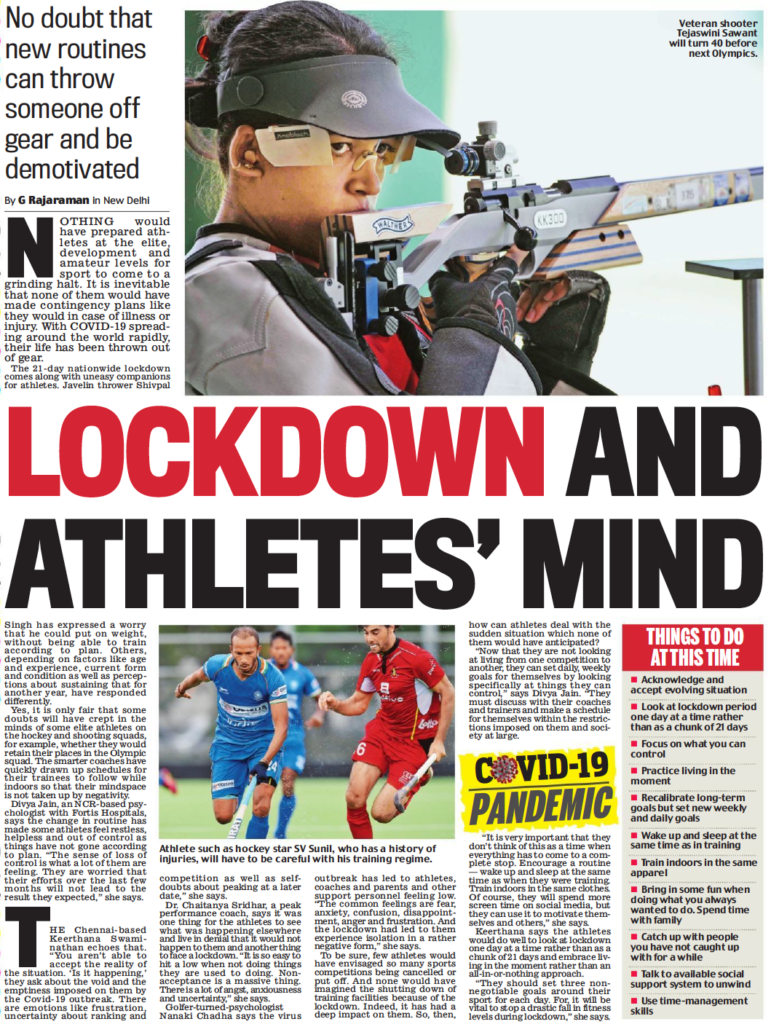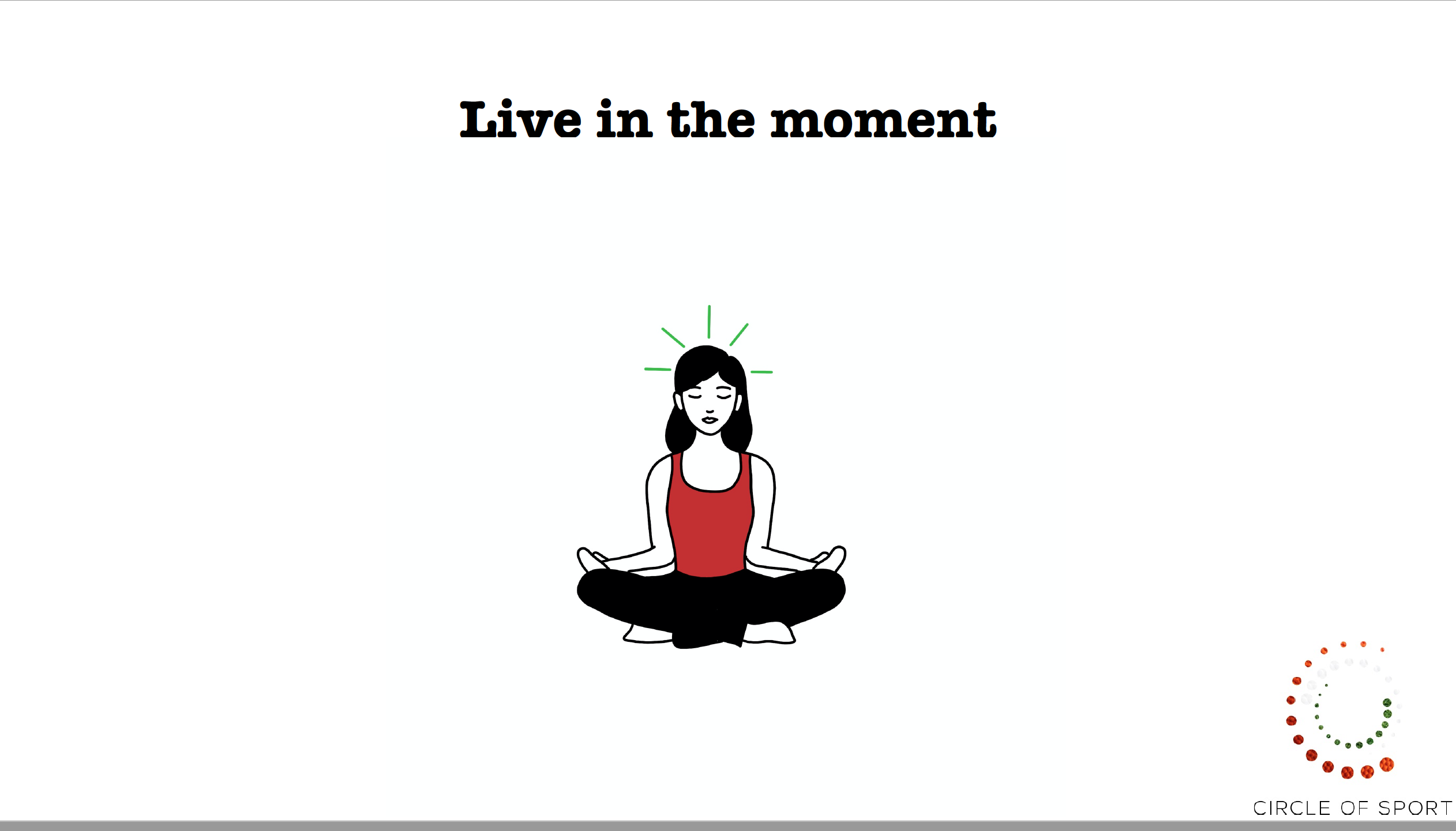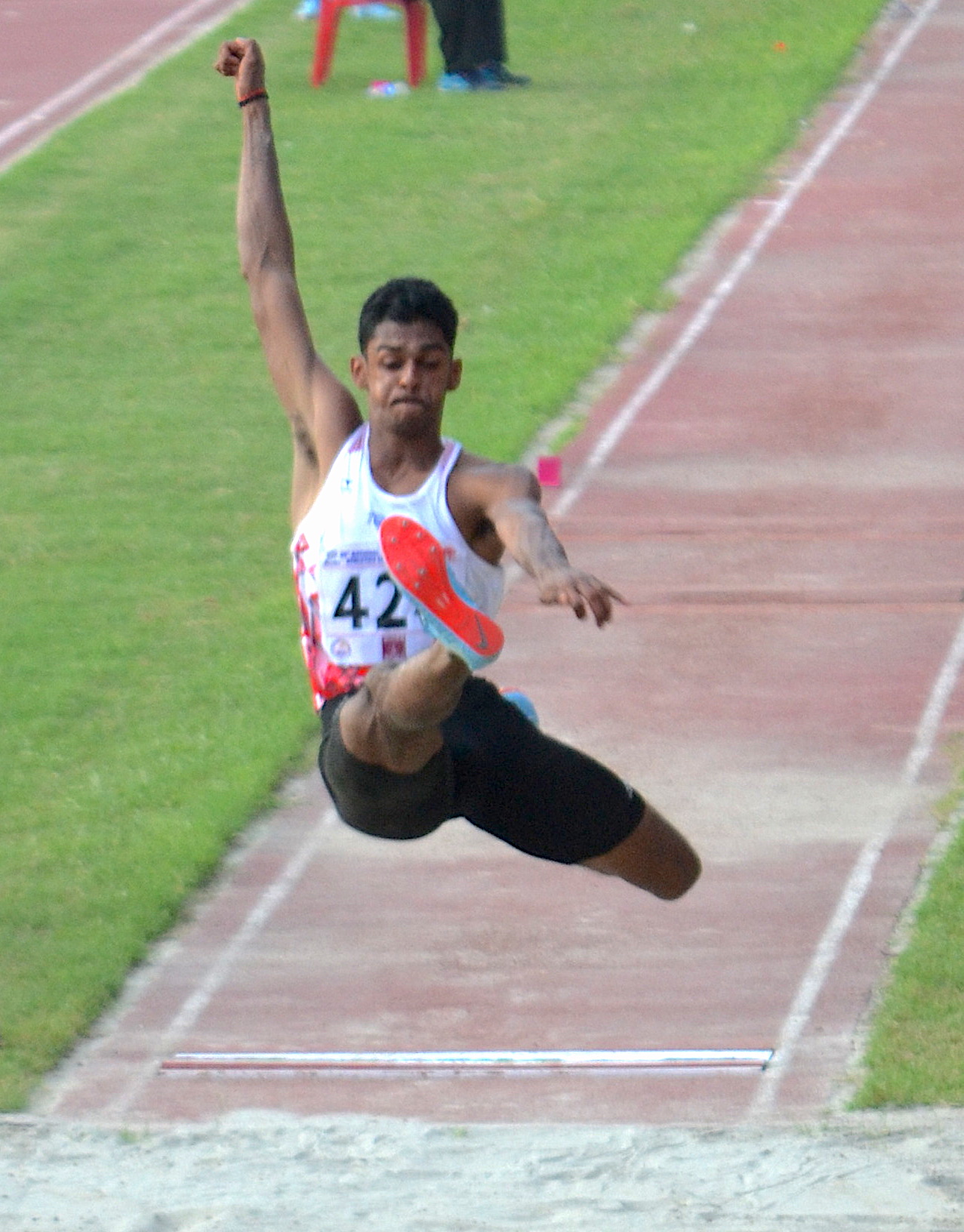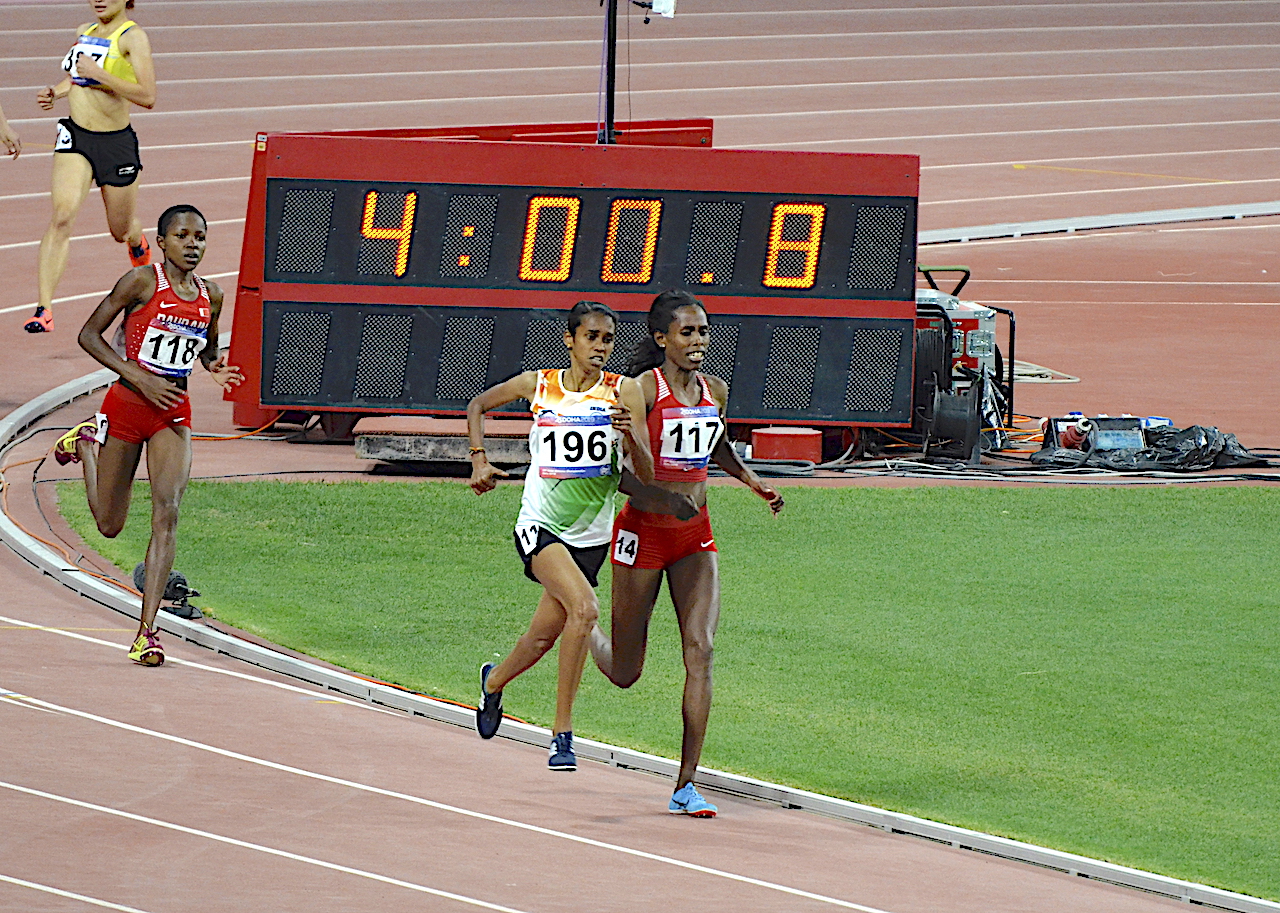Nothing would have prepared athletes at the elite, development and amateur levels for sport to come to a grinding halt. It is inevitable that none of them would have made contingency plans like they would in case of illness or injury. With Corono Virus (COVID-19) spreading around the world rapidly, their life has been thrown out of gear.
The 21-day nation-wide lockdown comes along with uneasy companions for athletes. Javelin thrower Shivpal Singh has expressed a worry that he could put on weight, without being able to train according to plan. Others, depending on factors like age and experience, current form and condition as well as perceptions about sustaining that for another year, have responded differently.
Yes, it is only fair that some doubts will have crept in the minds of some elite athletes on the hockey and shooting squads, for example, whether they would retain their places in the Olympic squad. The smarter coaches have quickly drawn up schedules for their trainees to follow while indoors so that their mindspace is not taken up by negativity.
Here’s a slideshow of what four sports psychologists have helped put together:
Divya Jain, an NCR-based psychologist with Fortis Hospitals, says the change in routine has made some athletes feel restless, helpless and out of control as things have not gone according to plan. “The sense of loss of control is what a lot of them are feeling. They are worried that their efforts over the last few months will not lead to the result they expected,” she says.
The Chennai-based Keerthana Swaminathan echoes that. “You aren’t able to accept the reality of the situation. ‘Is it happening,’ they ask about the void and the emptiness imposed on them by the Covid-19 outbreak. There are emotions like frustration, uncertainty about ranking and competition as well as self-doubts about peaking at a later date,” she says.
Dr. Chaitanya Sridhar, a peak performance coach, says it was one thing for the athletes to see what was happening elsewhere and live in denial that it would not happen to them and another thing to face a lockdown. “It is so easy to hit a low when not doing things they are used to doing. Non-acceptance is a massive thing. There is a lot of angst, anxiousness and uncertainty,” she says.
Golfer-turned-psychologist Nanaki Chadha says the virus outbreak has led to athletes, coaches and parents and other support personnel feeling low. “The common feelings are fear, anxiety, confusion, disappointment, anger and frustration. And the lockdown had led to them experience isolation in a rather negative form,” she says.
To be sure, few athletes would have envisaged so many sports competitions being cancelled or put off. And none would have imagined the shutting down of training facilities because of the lockdown. Indeed, it has had a deep impact on them. So, then, how can athletes deal with the sudden situation which none of them would have anticipated?
“Now that they are not looking at living from one competition to another, they can set daily, weekly goals for themselves by looking specifically at things they can control,” says Divya Jain. “They must discuss with their coaches and trainers and make a schedule for themselves within the restrictions imposed on them and society at large.
“It is very important that they don’t think of this as a time when everything has to come to a complete stop. Encourage a routine – wake up and sleep at the same time as when they were training. Train indoors in the same clothes. Of course, they will spend more screen time on social media, but they can use it to motivate themselves and others,” she says.
Keerthana Swaminathan says the athletes would do well to look at lockdown one day at a time rather than as a chunk of 21 days and embrace living in the moment rather than an all-in-or-nothing approach. “They should set three non-negotiable goals around their sport for each day. For, it will be vital to stop a drastic fall in fitness levels during lockdown,” she says.
Nanaki Chadha advises athletes to should stop thinking about the uncertainty and focus on the controllables. “This can be done through a routine, incorporating activities essential for their sport and are within the lockdown rules. Sleep, nutrition, exercise and self-care. This time can also be used to develop confidence and concentration. And enhance relaxation techniques,” she says.
Dr. Chaitanya Sridhar says it is important for athletes to recognise what is happening to themselves and the society at large. “Stress harmones build up, thanks to the easy access to negative communication. The uncertainty reaches abnormal proportions. The key is to quickly accept that things have gone off and then address how one can take care of oneself under the circumstances.”
She says sport can’t ignore the sociological currents and athletes must avoid feeling isolated. “They can do this by reaching out to the community to hold them. Let go of frustration that you can’t hit the gym or run 5km. Find a way to get the energy out. Athletes can come together and build on that. It would be a message to the world so that we can emerge stronger,” she says.
There is no doubt that new routines can throw someone off gear and be demotivated. That is the reason social support – by parents, coaches and peers who are open to communication and are available – becomes extremely important. Sitting and noting down the routine in a journal can be of help, too.
Some athletes have planned to catch up on academic lessons that they missed when in the respective national camps. Others have rediscovered their passion for other creative things. For instance, badminton player Malvika Bansod has returned to playing music on the keyboard, mindful of her nutritional intake and sustaining optimal physical activity. There are others who have welcomed the break after the rigours of the past few years.
This article first appeared in Mail Today on Monday, March 30, 2020.



